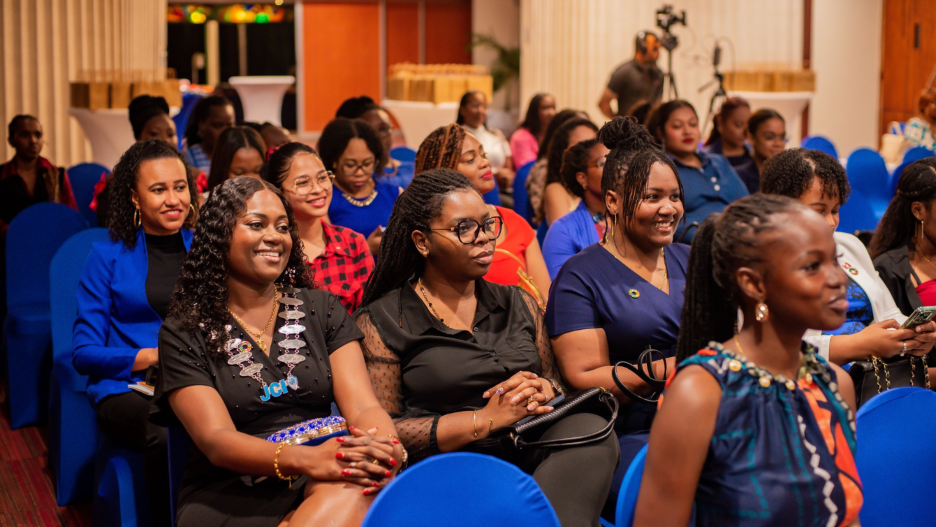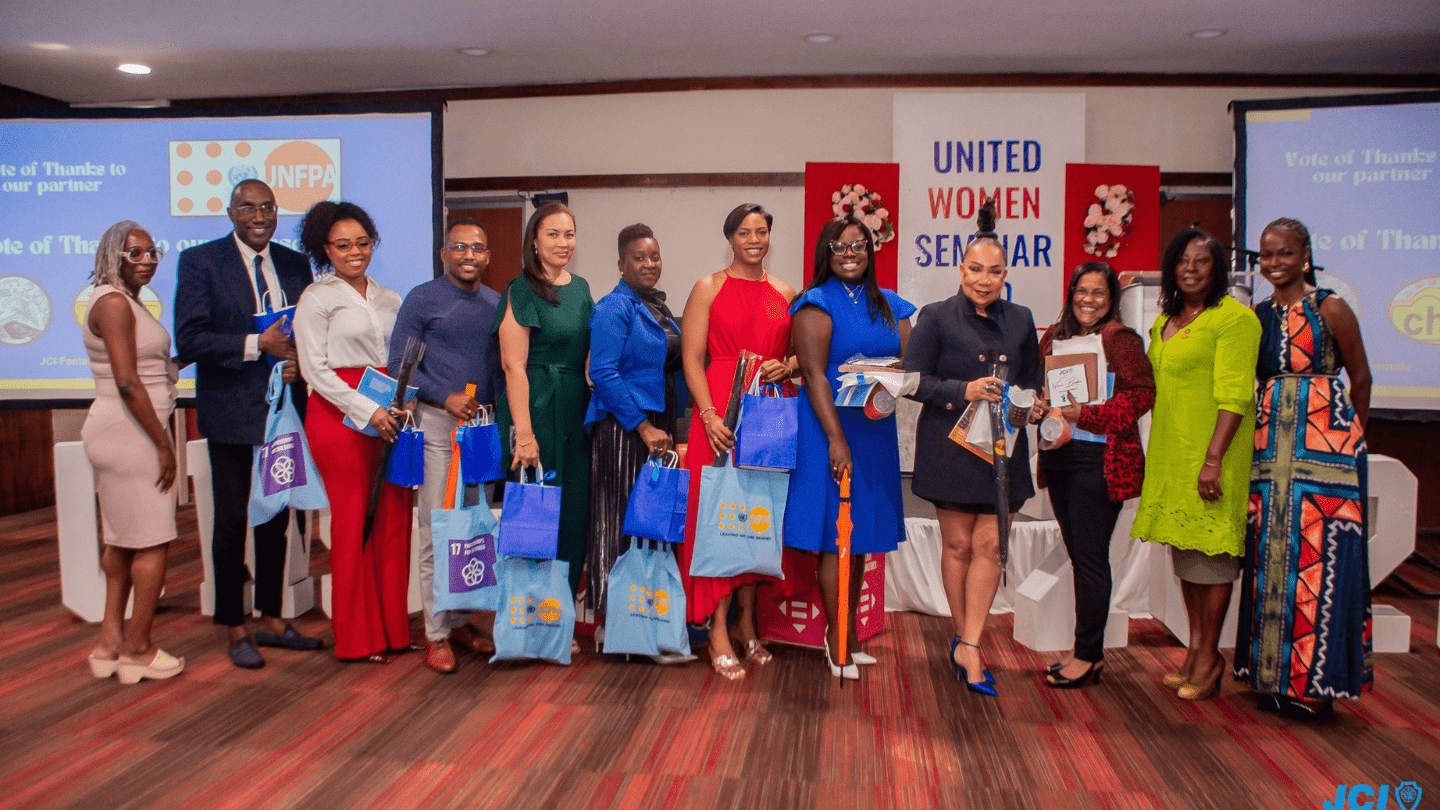In a packed room at Torarica, over 90 women and men gathered to engage in a dynamic dialogue on accelerating gender equality and equity. The 5th edition of the United Women Seminar, a collaboration between UNFPA, JCI Female, the business community, and other partners, took place on International Women's Day March 8 from 7 p.m. to 10 p.m. The event featured lively discussions between keynote speakers, panelists, and participants.
UNFPA’s mandate to harness the potential of young people and amplify the voices of marginalized groups, such as Maroon and Indigenous women, led us to invite young women and women from these communities to participate in the panels. These groups, often overlooked, had the opportunity to represent their interests at a national level during this high-profile event.
The first session, "Inclusive Roles in Gender Parity," focused on strategies for improving recruitment and mentoring practices that promote women’s participation in leadership roles within companies and government sectors. Participants discussed the obstacles women face, including flawed legislation, inaccessible healthcare and education, and intersecting cultural, ethnic, and gender norms that hinder their potential. To overcome these barriers, inclusive interventions and decision-making processes are essential. Media, education, and leadership must reflect the diverse and complex identities of women. Key strategies include equal gender representation on company boards, engaging men as champions for gender equality, embracing diversity, ensuring equal pay, and offering flexible work options. Inclusion is not just a buzzword; it is a fundamental principle necessary for creating environments that foster equality and equity in our societies.

In the session "Gender Balance: An Economic Necessity," the keynote speaker emphasized the urgent need for comprehensive data on gender equality within the Surinamese context. A key highlight was the correlation between women's participation in senior management roles and a reduction in corruption. The presence of women in leadership positions not only boosts financial performance but also enhances the stability of financial institutions. Women have proven to be more adept at managing risks and are often more diverse in their thinking, leading to stronger decision-making.
The speaker also underscored the alarming wage gap, with male colleagues frequently earning higher salaries than their female counterparts, pointing to the need for systemic change. In Suriname's financial sector, the lack of women in leadership positions is particularly concerning. McKinsey (2016) highlights the economic benefits of gender parity, noting that if women were more widely represented in senior management, global GDP could increase by $28 trillion by 2025. However, these findings have yet to be fully implemented.
Looking ahead, the speaker stressed the importance of increasing access to education, legal protection, and addressing issues such as the challenges pregnant women face in securing employment. Additionally, promoting financial and digital inclusion, as well as recognizing and valuing unpaid work, are critical steps in achieving gender equality. The speaker also called for a significant increase in the budget for the Bureau of Gender Affairs to support these efforts.
The keynote on "Advocacy, Inclusive Mindsets, and Tangible Action" took the audience back to the 1980s, when married women could not buy a house or obtain a loan without their husband’s signature. The keynote speaker reminded the audience of the historical struggles for women's rights, emphasizing the importance of remembering how far women have come. She highlighted the need for women in decision-making positions across all sectors and advocated for SDG 5 to address gender roles and accelerate progress. The speaker urged the audience to reflect on their personal and professional goals, and to consider how access to loans and leadership opportunities can empower women. The session's takeaway was clear: take charge of your future and make your voice heard in the institutions that matter.
The panelist, Jennifer Bree-Van Ewijk, who proudly embraces her Tribal heritage, shared a profoundly moving and powerful testimony:
"Being part of this panel was a phenomenal experience. We were able to discuss issues that directly impact women. Gender equality, viewed through the lens of economic empowerment, is particularly meaningful for Maroon women. We need greater awareness that we are worthy and capable of receiving what we rightfully deserve. We must shatter the mental barriers that tell us we are only deserving of the bare minimum or that we must work excessively for substandard outcomes. This mindset is unacceptable. The next generation needs strong role models who embody confidence and assertiveness."
The valuable perspectives and knowledge shared by the keynote speakers, panel members, and participants during this seminar have significantly reinforced and supported UNFPA's mandate to accelerate and prioritize gender-focused actions as we move forward towards the 2030 agenda. The discussions and insights generated throughout this event will be instrumental in shaping UNFPA's strategies and initiatives aimed at achieving gender equality and empowering women and girls in all aspects of their lives.


